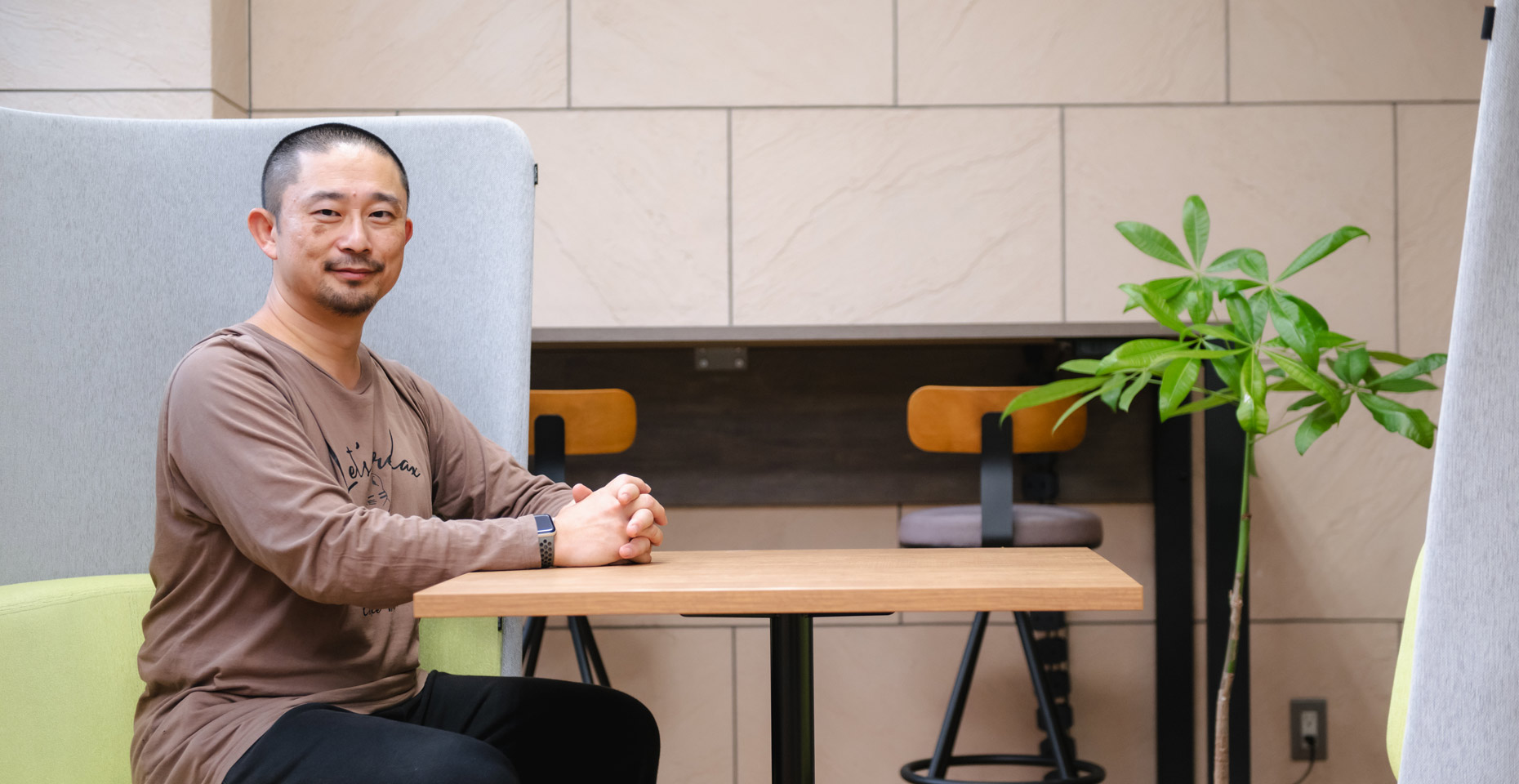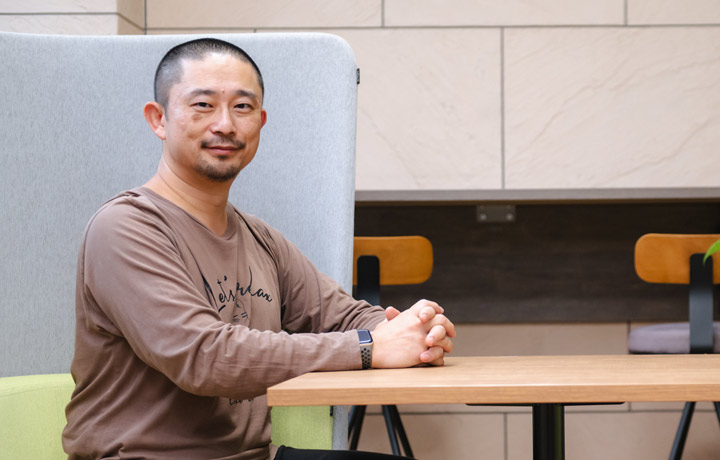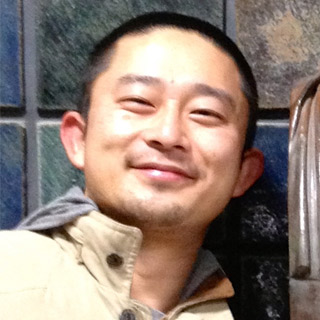Virtue ethics, a branch of philosophy, delves into desirable character traits like honesty, sincerity, prudence, and autonomy. But why is the study of virtue essential in our modern society? And which fields intersect with this study? To explore these questions, we spoke with Dr Koji Tachibana, Associate Professor of Philosophy at the Graduate School of Humanities, Chiba University. Dr Tachibana studies virtue ethics across multiple disciplines.
Virtue ethics and the pursuit of ‘personal growth’
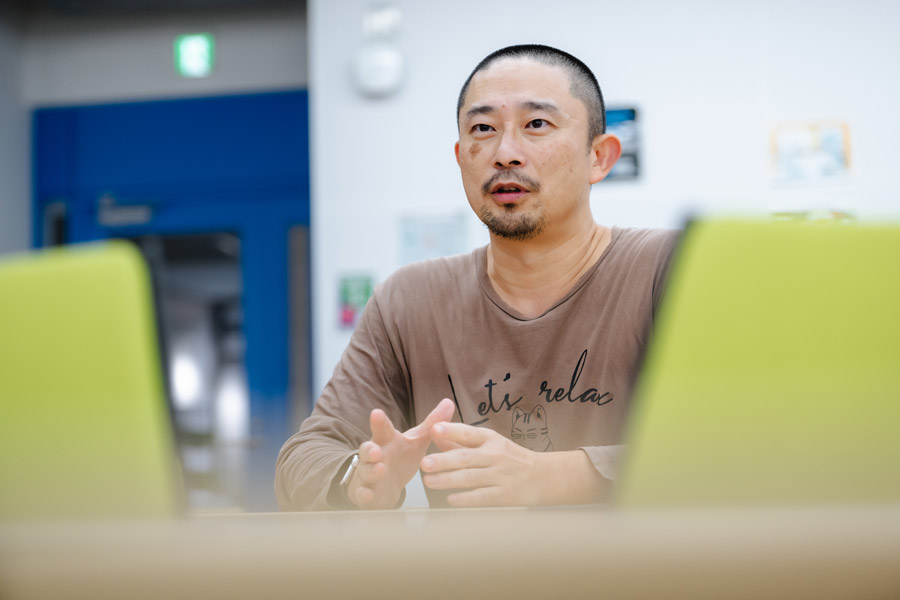
In 2023, you published the edited book named Education and the Philosophy of Virtue.
Could you tell us about your book?
Certainly. Let’s consider virtue as ‘a state of character that an individual possesses.’ Ancient Greek philosophers like Plato and Aristotle extensively discussed the nature of virtue and the methods of its acquisition, which is now known as ‘virtue ethics.’ As such, the philosophizing of virtue has been closely intertwined with its teaching.
The question is, how should we conceptualize virtue in contemporary Japanese society?
Not only at our university, but I also often conduct classes at various educational levels, from elementary to high school. When I ask students, “What do you want to be when you grow up?”, common answers include “Professional baseball player,” “YouTuber,” “Celebrity,” or “Rich.” Interestingly, very few students give aspirations related to personality, such as, “I want to be an honest person,” “Kind to others,” “Not a liar,” or “Trustworthy.” They tend to imagine their future from the viewpoints of their occupation and social status.
Your question, “What do you want to be?” is open to answers related to personality, yet you receive very few such responses.
Exactly. Virtue ethics argues that what truly matters for personal growth is what kind of person one is, regardless of one’s occupation or social status.
Modern society in Japan tends to prioritize career, income, and social standing. Children are influenced by this tendency. There is far too little focus on ‘how to grow as a human being,’ or ‘what virtues to cultivate.’ The motivation behind my research on Education and the Philosophy of Virtue is that this seems to be a question worth exploring further.
The perception of ‘virtue’ in modern Japan
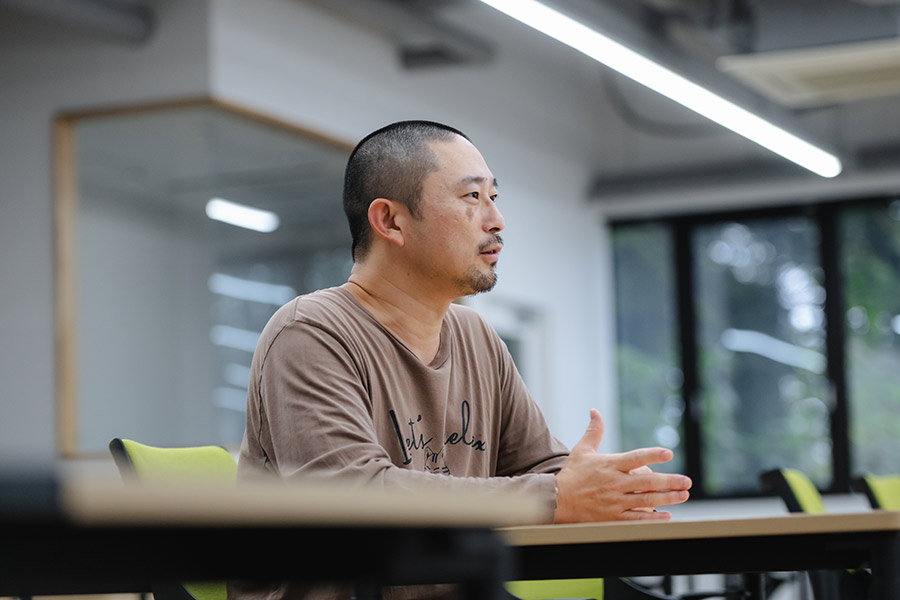
Could you please tell us how you conduct your research?
In 2019, I launched a study group with philosophers and pedagogical philosophers. In the group, we conducted literature readings, and each member gave a presentation on their research. The result of this was Education of the Virtue and Philosophy.
Recently, we conducted a questionnaire survey with two groups: one consisting of the general public and the other of experts assumed to be knowledgeable about virtue. The goal was to examine how people understand and perceive the concept of ‘virtue.’
Interestingly, the results revealed that many people do not have a negative impression of the word ‘virtue,’ which was an unexpected finding.
Given experiences like the Imperial Rescript on Education during prewar Japan, you might have expected some resistance to virtue and moral education, but your study showed the opposite.
Although about 80 years have passed since the end of World War II, the data has shown that there was almost no negative impression of the word ‘virtue.’ Of course, given Japan’s historical background, we must remain aware of the dangers of paternalistically promoting specific virtues. However, this is a separate issue from recognizing the importance of virtue itself.
What matters, I believe, is to continue having open discussions about which virtues to emphasize, while also considering virtue-oriented education and child development.
Did the survey reveal any differences between the general public and experts regarding their understanding and perception of ‘virtue?’
We found that the general public tended to associate virtue with more passive and emotion-related values, such as ‘gratitude’ and ‘compassion.’ We expect it might be influenced by Buddhist values. In contrast, experts placed greater emphasis on Western values such as ‘self-discipline’ and ‘thoughtfulness.’
While this survey is only a starting point, we consider it necessary to build on it with further research, including analyzing the factors behind the changing perceptions of ‘virtue’ and conducting surveys on schoolteachers’ understanding of the concept.
Research with JAXA: Why does human performance decline in an isolated and confined environment?

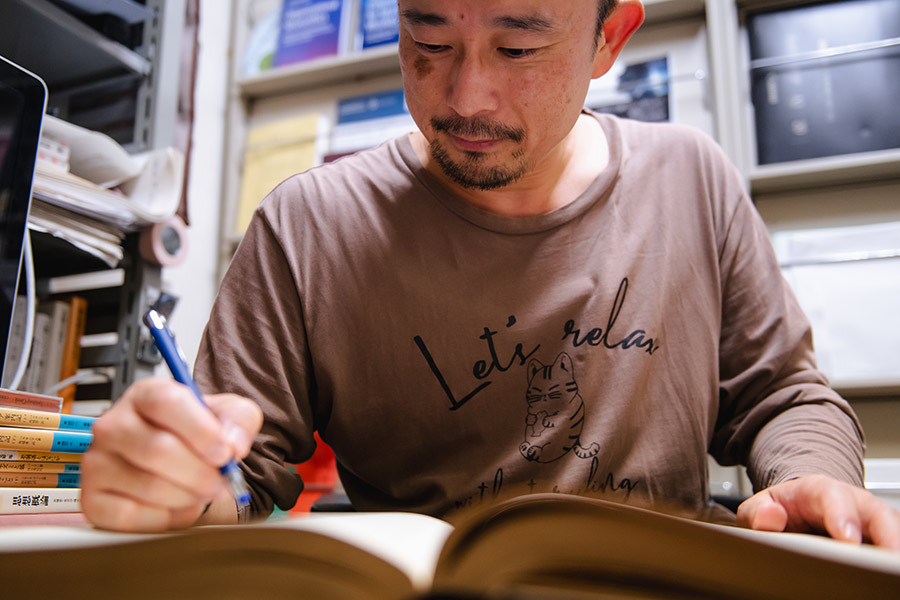
You are conducting joint research with scientists at the Japan Aerospace Exploration Agency (JAXA) and other international space institutes as a virtue ethics researcher. What do you do with them?
Virtue ethics considers that once an individual has acquired virtue, they will consistently behave virtuously. For example, a courageous person will demonstrate bravery across various situations, and an honest person will maintain their integrity regardless of the circumstances.
However, though not in the context of philosophy, psychological research from the 1960s and 1970s challenged the idea of such a stable personality. This debate sparked a major debate over whether human behavior is primarily shaped by an individual’s character traits or by external factors such as their environment and immediate circumstances.
What particularly caught my attention in this debate was the issue of ‘isolation’ and ‘closure.’ Some psychological studies have shown that when individuals are placed in isolated, closed environments, it becomes significantly harder for them to behave ethically. Numerous experiments exploring this phenomenon were conducted in the 1960s and 1970s, but by the 1980s, such research had largely ceased. The reason for this shift was the growing recognition of research ethics: that is, these studies imposed a significant psychological burden on participants, leading to mental health issues and lowered self-esteem. As research ethics advanced, conducting such experiments became increasingly unacceptable.
Under these circumstances, the International Space Station (ISS) interests me. Astronauts spend six months in an isolated and confined environment while their performance is monitored. Interestingly, their performance can decline over time, and their ethical and social behaviors can deteriorate as well. Issues such as conflicts with colleagues, tensions with ground staff, and even instances of harassment have been reported.
Even rigorously selected and well-trained astronauts struggle to maintain ethical behavior in such an environment. I learned that research into the causes of this phenomenon—and strategies to prevent it—are being conducted in the fields of space medicine and space psychology. I thought that this research could be placed as a continuation of the psychological studies from the 1960s and 1970s. With that in mind, I reached out to researchers at JAXA, and in 2016, we started collaborating on research and writing papers together.
The birth of new virtues in space: the potential of cosmopolitanism
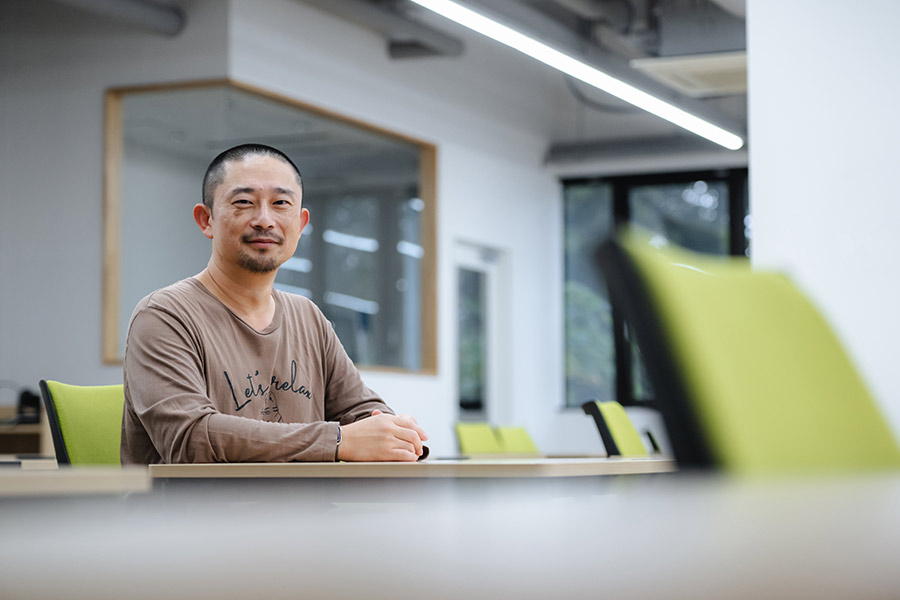
What kind of space research are you currently working on?
What interests me currently is the possibility that nationality may become less significant as humanity expands into space. The ISS serves as one example of this trend. Of course, the future remains uncertain. Russia and China are creating their own space development networks, while the United States is leading the Artemis Program, an international lunar exploration initiative. With Japan and over 40 nations participating, the Artemis Program could lead to the formation of large geopolitical groupings, much like those seen during the Cold War.
That said, outer space—at least for now—remains free from the national borders and deep-rooted cultural divisions that have historically been difficult to overcome on Earth. If we can maintain this perspective, space may offer the potential for the moral ideal of humanity and new virtues to emerge, which are distinct from those required in traditional societal structures.
I see this as the virtue of ‘cosmopolitanism’ in my chapter article contributed to the Oxford Handbook of Space Security (2024). While realizing this ideal on Earth has always been challenging, going into space might provide a chance to build a society less bound by nation-states and national identities—one that thoughtfully incorporates ‘cosmopolitan values.’
Where others turn away, opportunity awaits
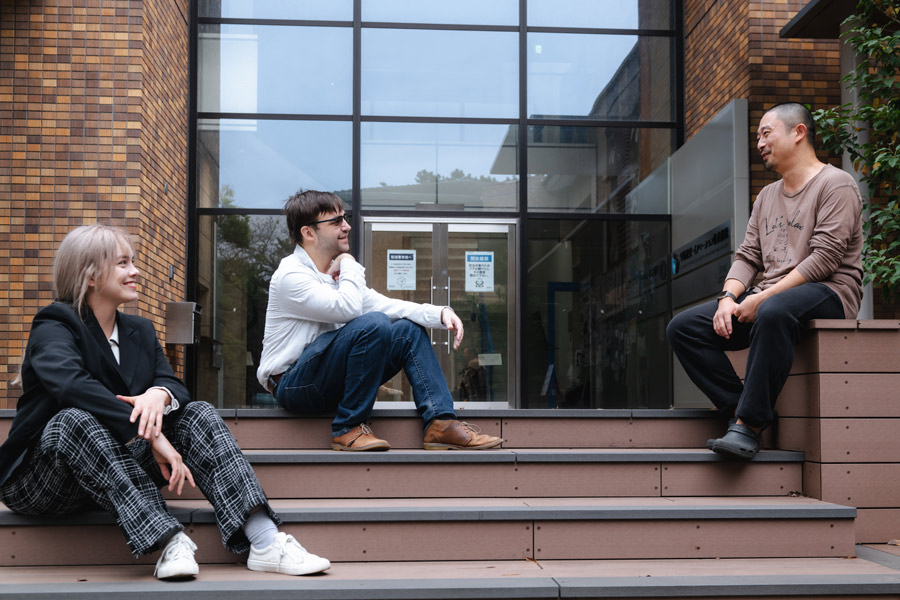
Please share a message for future undergraduates.
I believe it’s important to keep doing what you like, not limiting yourself to just one academic field, regardless of what others might say. There can be an opportunity hidden in the things that others overlook. If you find something interesting—even if others find it boring—that curiosity is something unique to you. Don’t disregard something just because others do; take the time to stop and think about it, and then you might discover something new along the way.
When I was a graduate student, I wrote my doctoral thesis on Aristotle’s ethics as the philosophical basis of his theory of moral education. At that time, there was very little research in that area, but I kept going, convinced that “I can find something.” Even when you feel certain that “this is interesting,” you can never know what will come out of it. But that’s okay—what matters is continuing to believe that “I will find something valuable.” Keep going, and trust in your own journey.
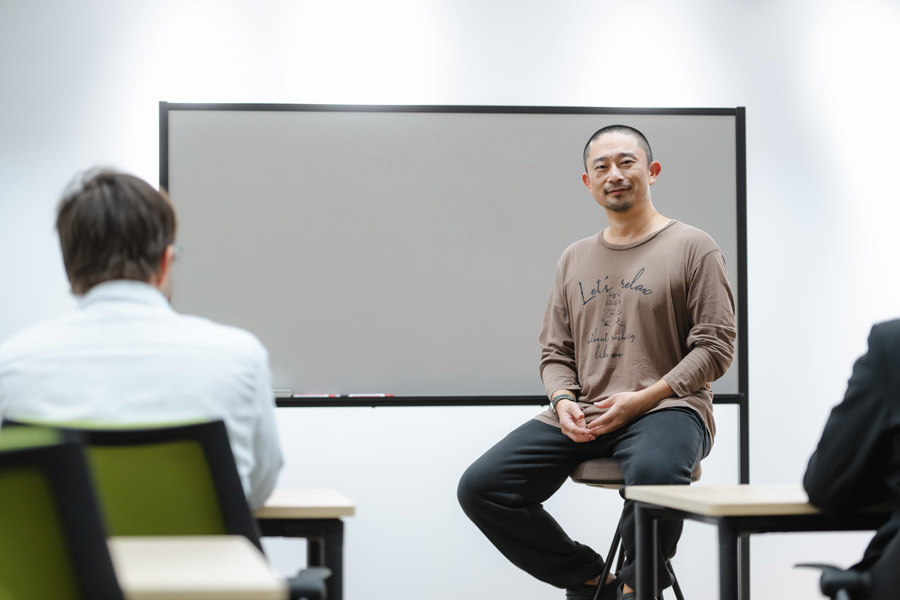
Recommend
-
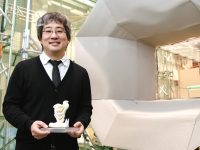
An insect and machine enthusiast delves into the flight mechanism of living organisms: From the mosquito flapping to the high-performance drones
2024.03.12
-

Examining Social Injustice of Modern Society through “Child Poverty”: Creating a Society Where Every Parent is Respected, and Every Child Thrives
2023.05.26
-

Unfettered thinking, elaborate theorizing, and an accepting and positive attitude: With the precepts of his former supervisors in mind, Dr. Shimada is tackling the global food crisis
2023.01.04


